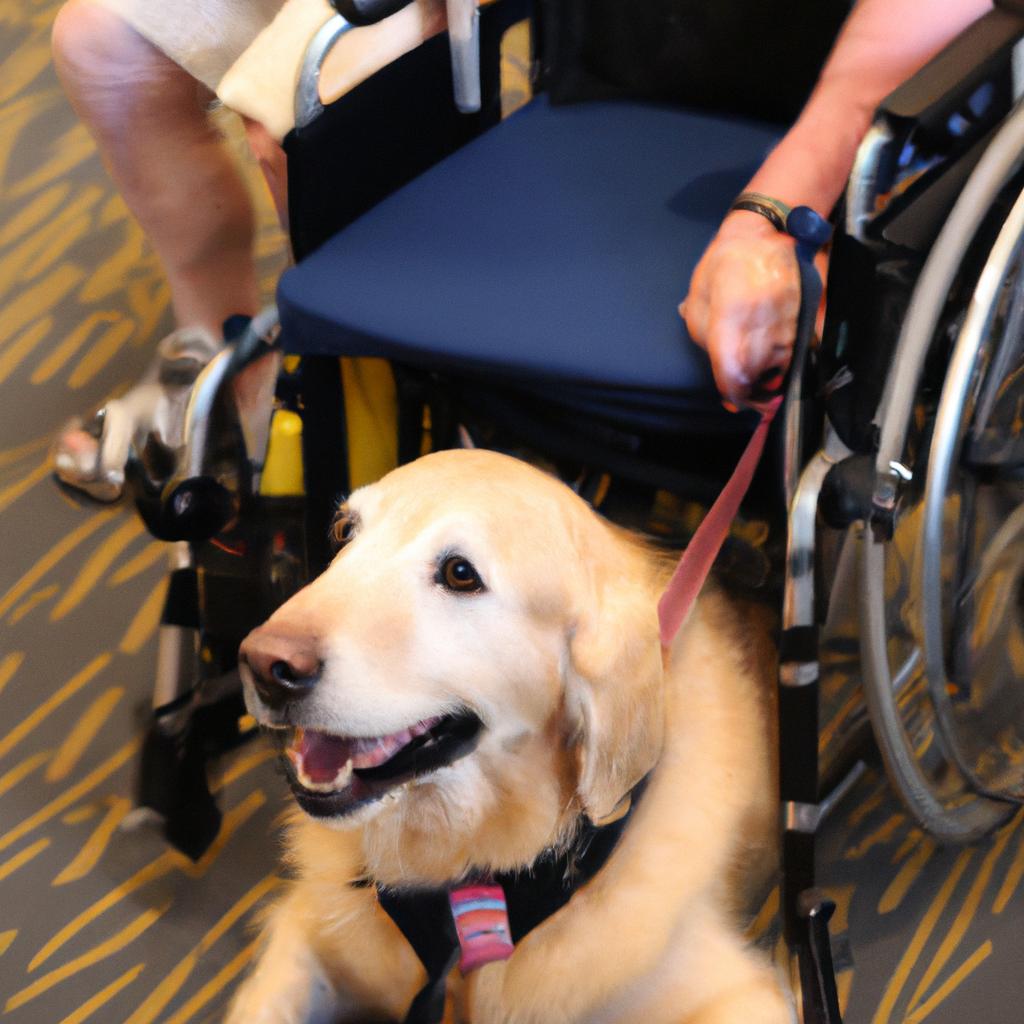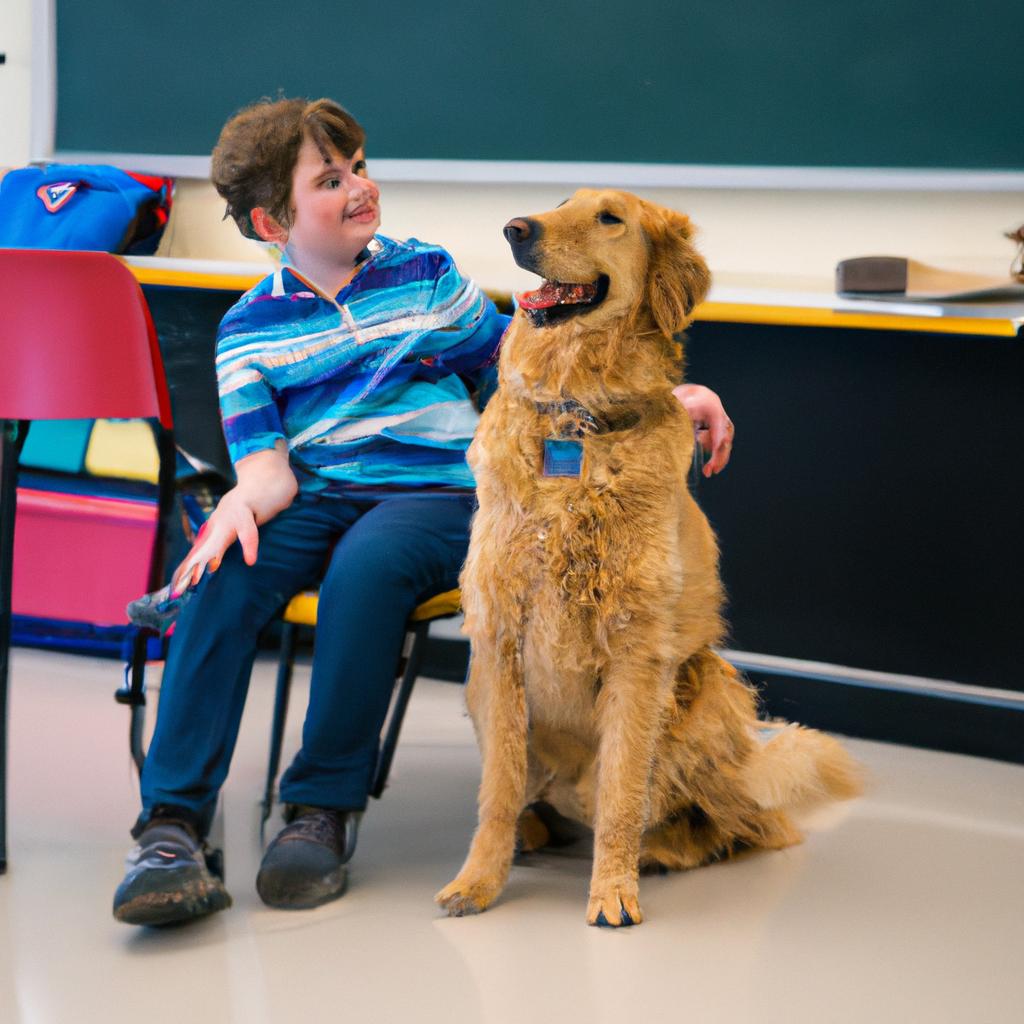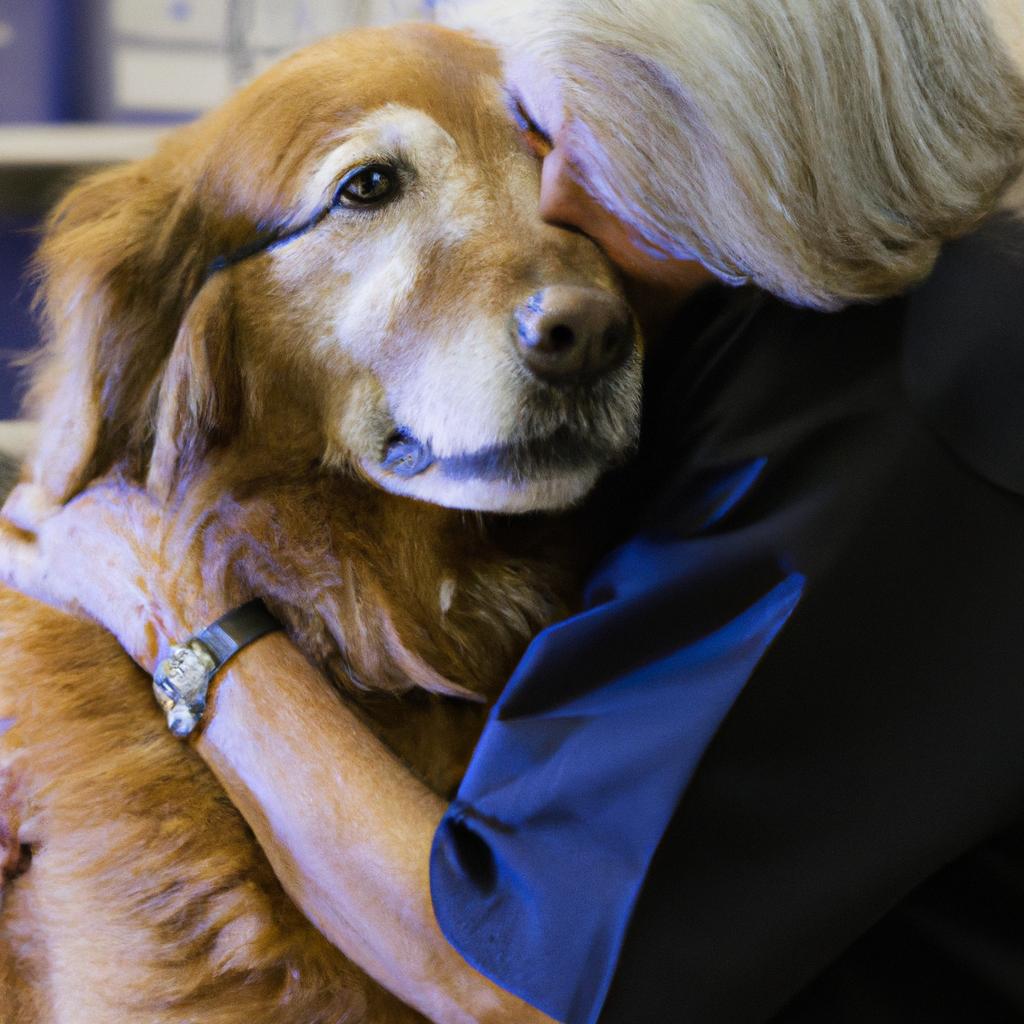Discover the amazing benefits of therapy dog.! From reducing stress to improving social skills, therapy dogs provide comfort and joy to those in need.
Therapy dogs have become a beacon of hope and solace for people in need of emotional support and companionship. These specially trained dogs work alongside their handlers to bring comfort and joy to individuals in various settings, ranging from nursing homes and hospitals to schools and disaster relief areas.

Therapy dogs differ from service dogs and emotional support animals, as they do not have specific tasks to perform for their owners. Instead, their main focus is on providing comfort and emotional support. As the popularity of therapy dogs continues to grow, it is important to understand the benefits they bring, the different types of therapy dogs, their training and certification, and the places they work.
Benefits of Therapy Dogs
Therapy dogs have been proven to have numerous physical, emotional, and social benefits for people.
Physical Benefits
Studies have shown that therapy dogs can reduce blood pressure, lower heart rate, and decrease stress levels in individuals. Additionally, these dogs have the remarkable ability to alleviate pain, reduce anxiety, and even expedite the recovery process in patients.
Emotional Benefits
Therapy dogs offer invaluable emotional support and comfort to individuals struggling with mental health issues such as depression, anxiety, and PTSD. The presence of these dogs has a calming effect, significantly reducing feelings of loneliness and isolation.
Social Benefits
Interacting with therapy dogs fosters the development of essential social skills, especially in children. Through their interaction with these gentle canines, children learn important values such as empathy, communication, and teamwork. For adults, therapy dogs facilitate social interactions, creating a sense of community and belonging.
In conclusion, therapy dogs have a multitude of benefits for individuals in need. From stress reduction to improved social skills, these remarkable dogs provide comfort and joy to those who need it most. Now, let’s delve into the different types of therapy dogs.
Types of Therapy Dogs

There are three main types of dogs commonly referred to as therapy dogs: service dogs, emotional support animals, and therapy dogs.
Service Dogs
Service dogs perform specific tasks for individuals with disabilities. They are trained to guide the blind, alert the deaf, or assist individuals with mobility issues. Unlike therapy dogs, service dogs have distinct jobs to fulfill.
Emotional Support Animals
Emotional support animals (ESAs) provide emotional support and comfort to individuals with mental health issues. While they don’t require specific training, they need to be prescribed by a licensed mental health professional.
Therapy Dogs
Therapy dogs are trained to offer comfort, emotional support, and companionship in various settings. These dogs work closely with their handlers to visit hospitals, nursing homes, schools, and disaster relief areas, positively impacting the lives of countless individuals.
Training and Certification

To ensure their well-behaved nature and ability to handle different environments, therapy dogs require special training. Handlers must adhere to standards that include basic obedience, socialization, and temperament testing.
Certification is also essential to ensure the safety and reliability of therapy dogs. The certification process typically involves evaluating the dog’s behavior and training by a qualified professional. It is crucial to work with reputable organizations to ensure your dog meets the necessary standards.
In conclusion, therapy dogs come in various forms, each with its unique purpose. Whether providing emotional support to their owners or offering comfort in different settings, therapy dogs have proven their effectiveness in improving people’s well-being. Proper training and certification are integral to ensure the safety and reliability of therapy dogs. Now, let’s explore the different places where therapy dogs work.
Places Therapy Dogs Work

Therapy dogs can be found in various settings and environments, providing comfort and emotional support to those who need it most. Let’s take a look at some of the places where therapy dogs work:
Hospitals and Healthcare Facilities
Therapy dogs play a vital role in hospitals and healthcare facilities, assisting patients in coping with illnesses, injuries, and medical procedures. They provide companionship, alleviate stress and anxiety, and uplift spirits.
Schools and Universities
Therapy dogs are increasingly being welcomed into schools and universities, helping students manage stress, anxiety, and the pressures of academia. These dogs also contribute to the improved social skills of children, especially those on the autism spectrum or with developmental disabilities.
Nursing Homes and Assisted Living Facilities
In nursing homes and assisted living facilities, therapy dogs offer comfort, companionship, and emotional support to residents. Their presence reduces feelings of loneliness and isolation, significantly improving the overall well-being of the residents.
Disaster and Crisis Response
During times of disaster and crisis, therapy dogs provide much-needed emotional support to both victims and first responders. These dogs help alleviate stress and anxiety, creating a sense of comfort and safety for those affected by the crisis.
Conclusion
Therapy dogs, by providing comfort and joy, have become an integral part of our society. Their physical, emotional, and social benefits are evident, making them a source of hope and solace for countless individuals. If you wish to support therapy dog programs and organizations, there are many ways to get involved. You can donate to organizations that provide therapy dog services, volunteer at local shelters to help train therapy dogs, or even consider adopting a therapy dog yourself. Together, we can make a difference and bring comfort and joy to those in need.
TooLacks specializes in news covering nature, gardening, and animals. For more information on therapy dogs, visit TooLacks.



